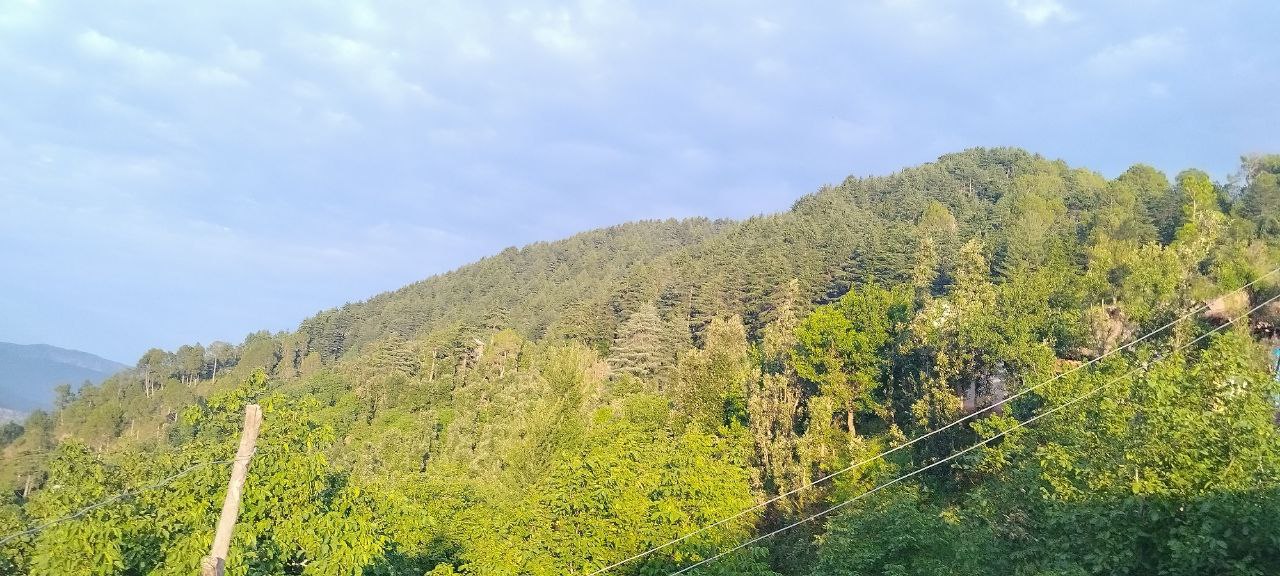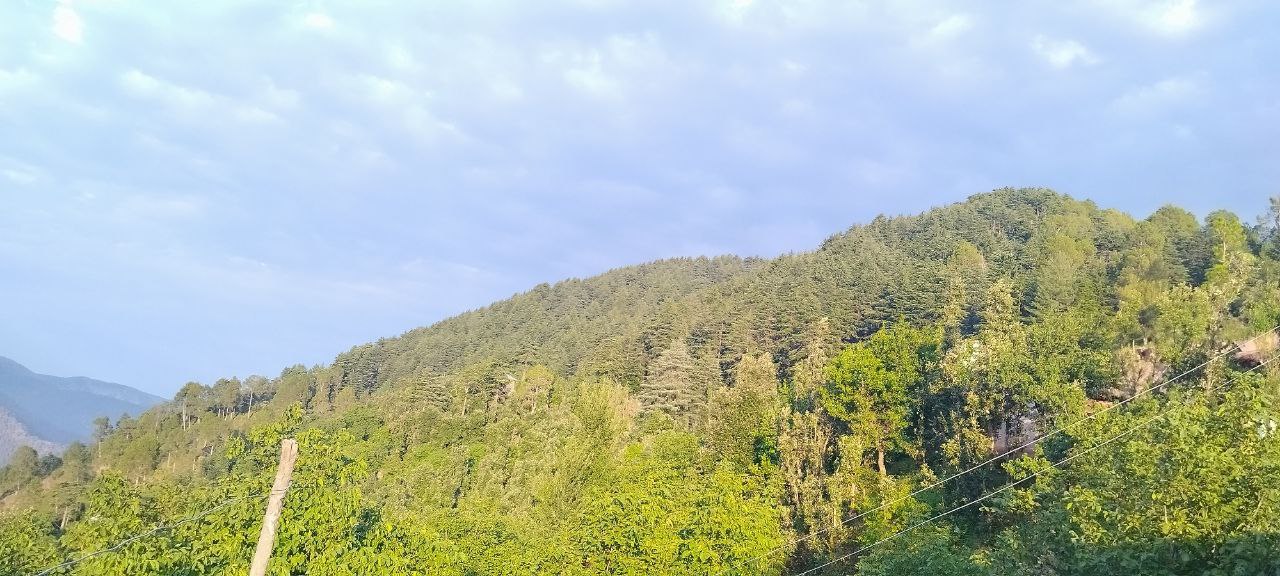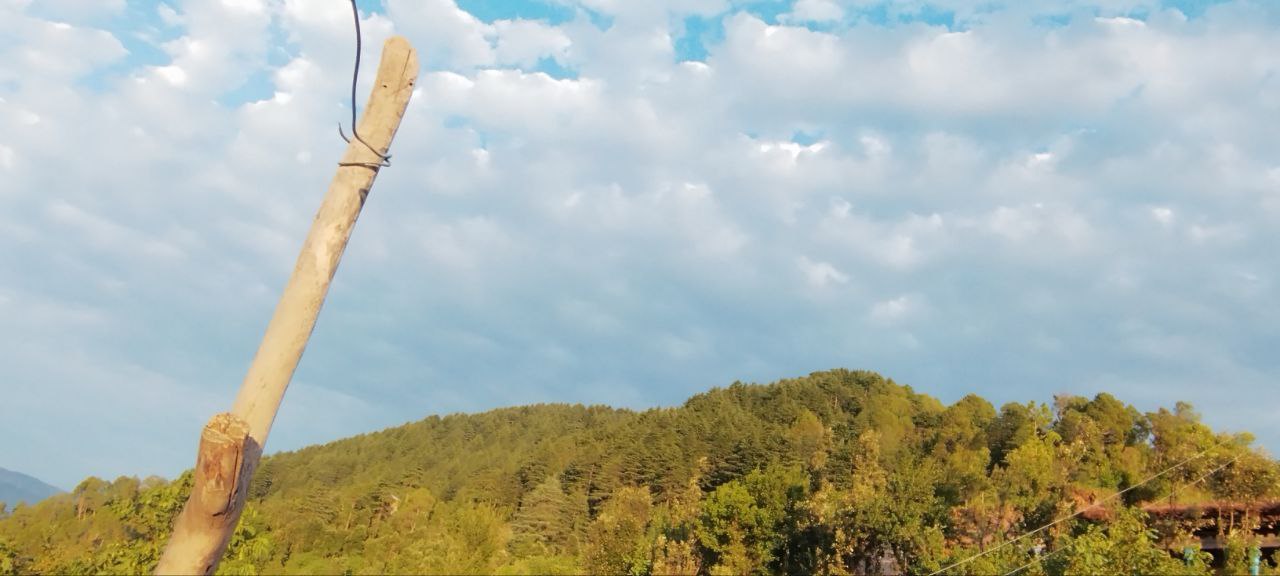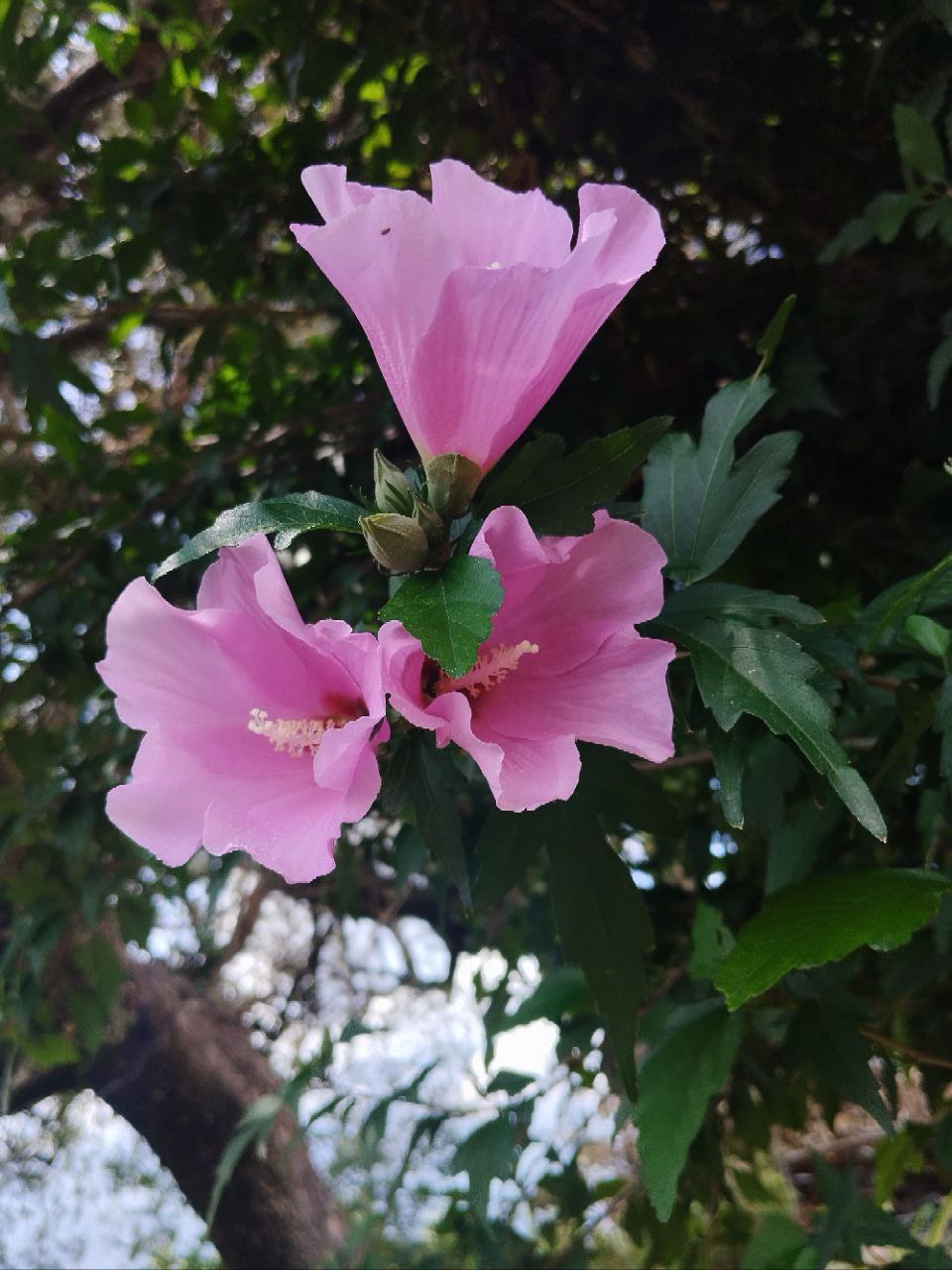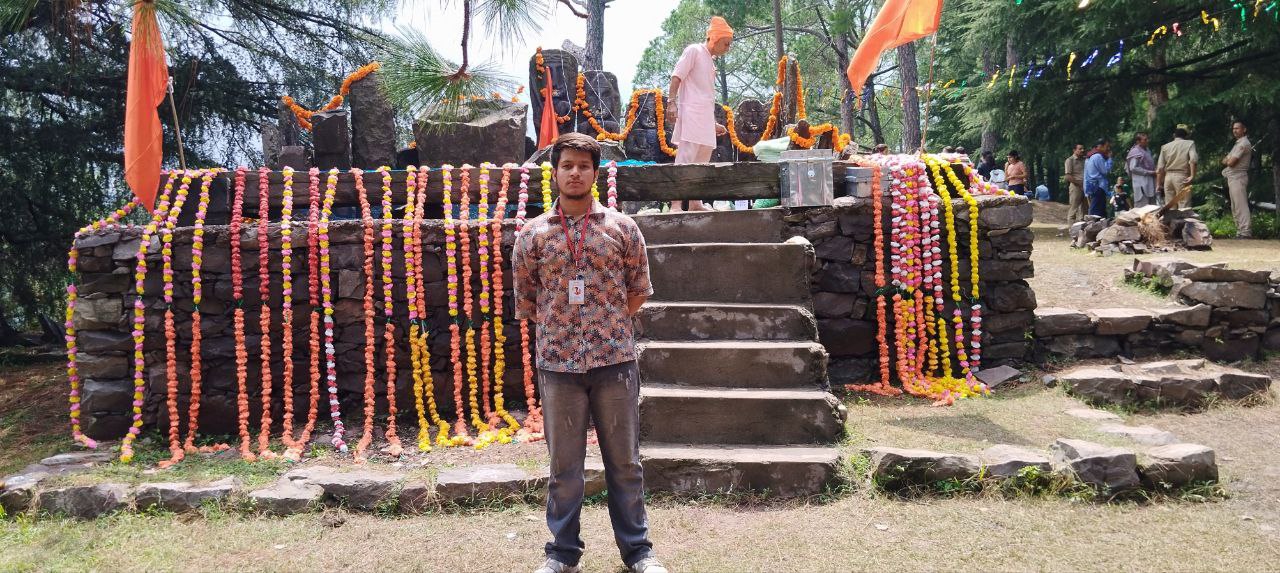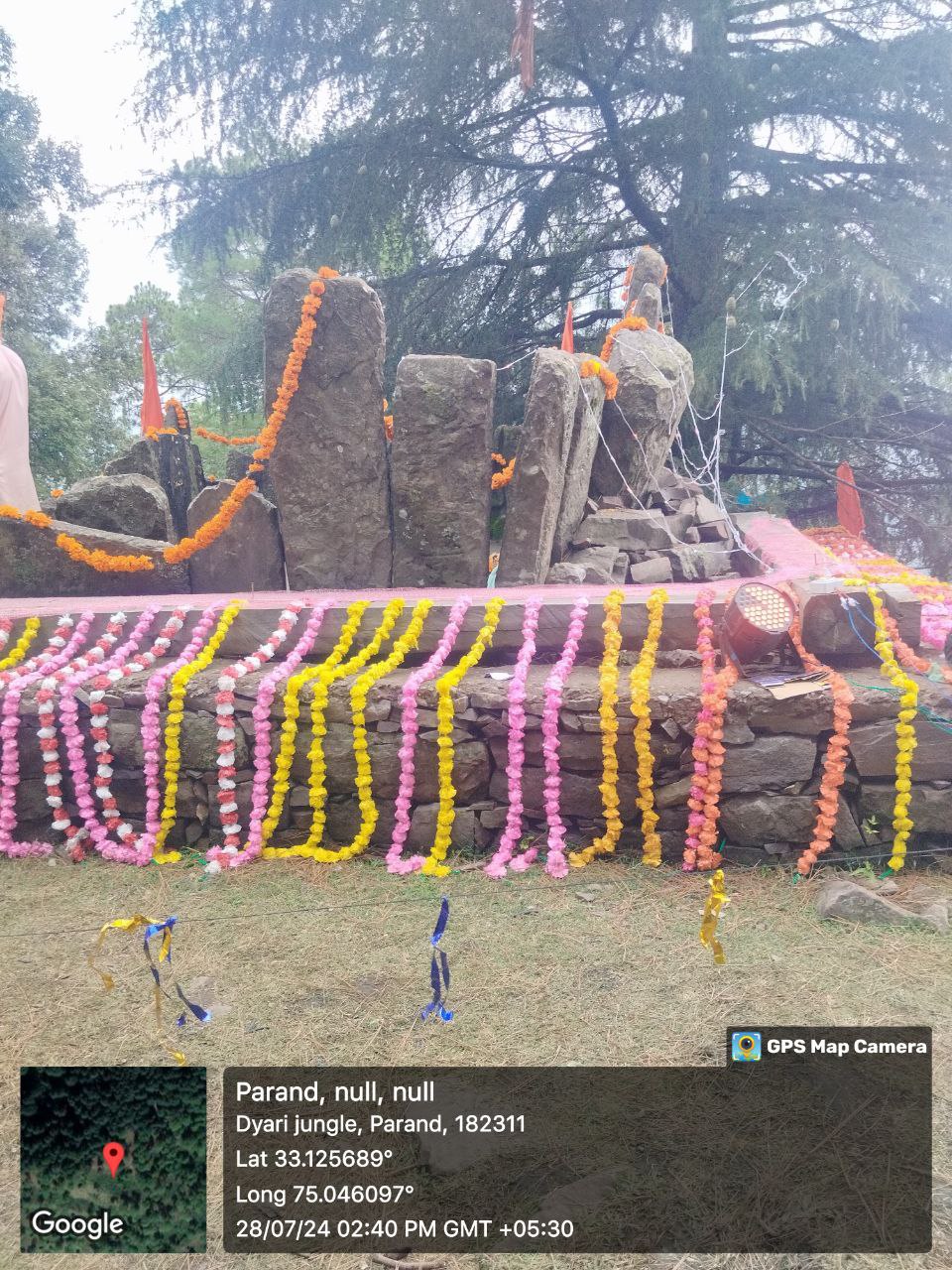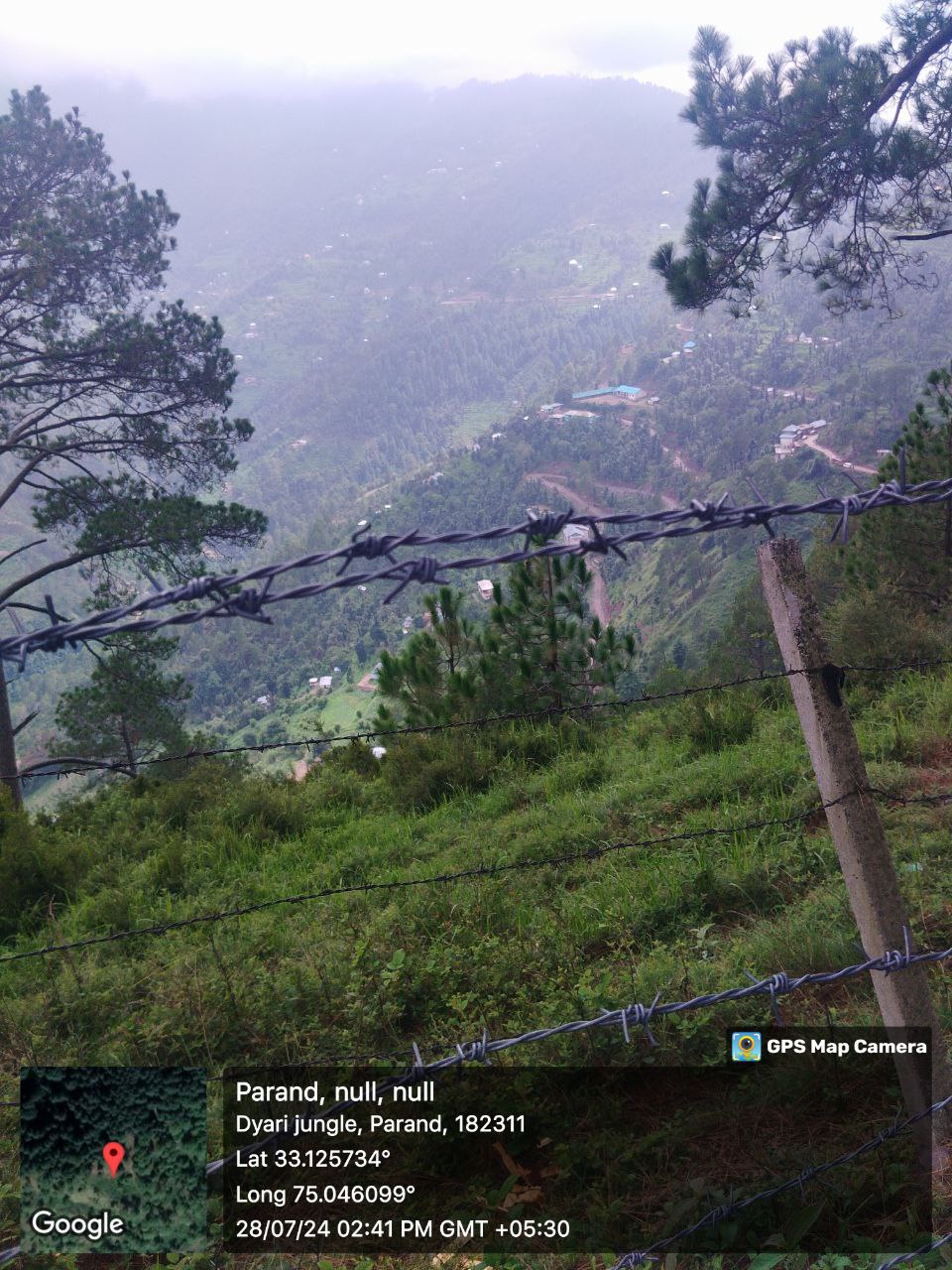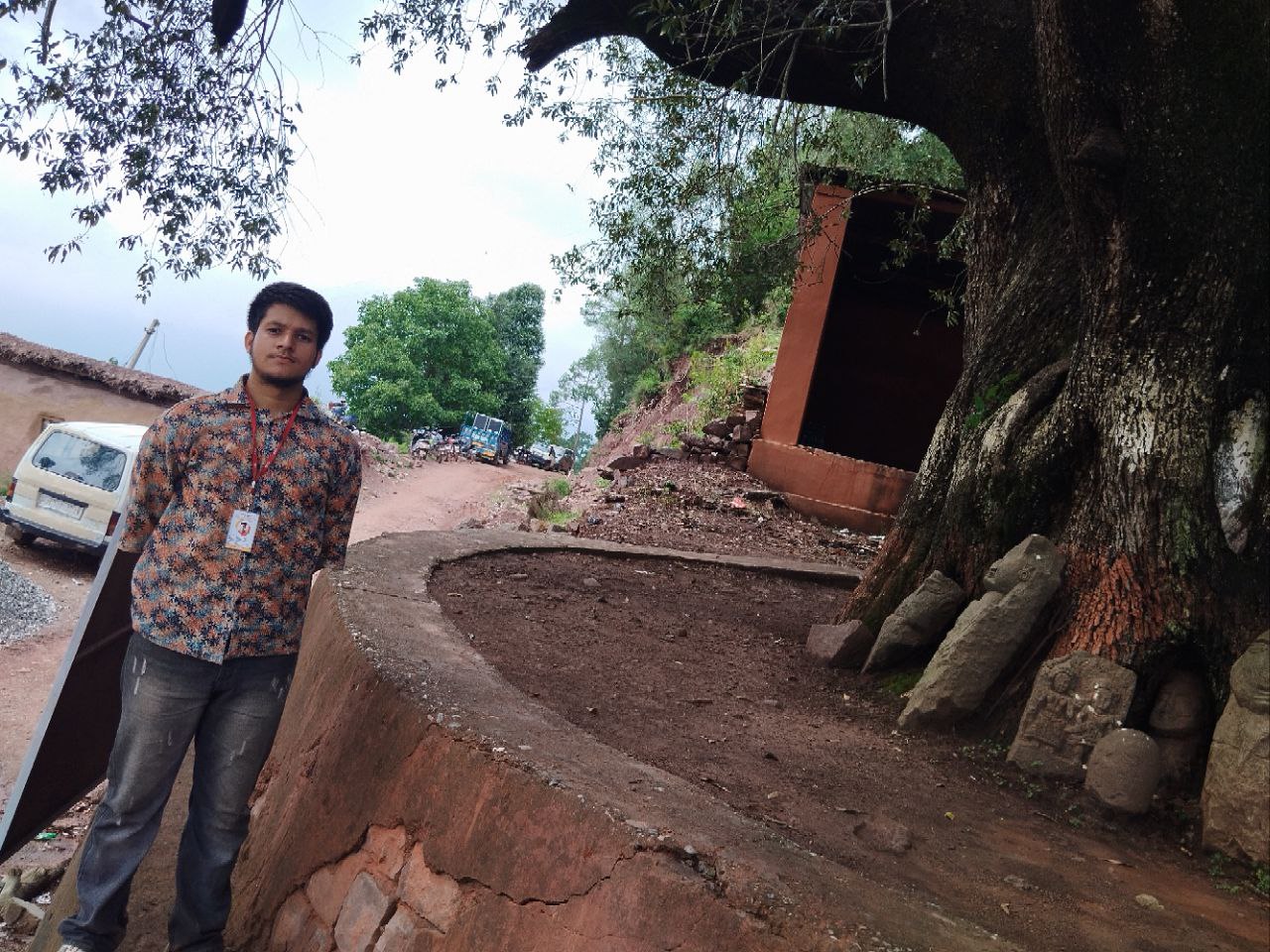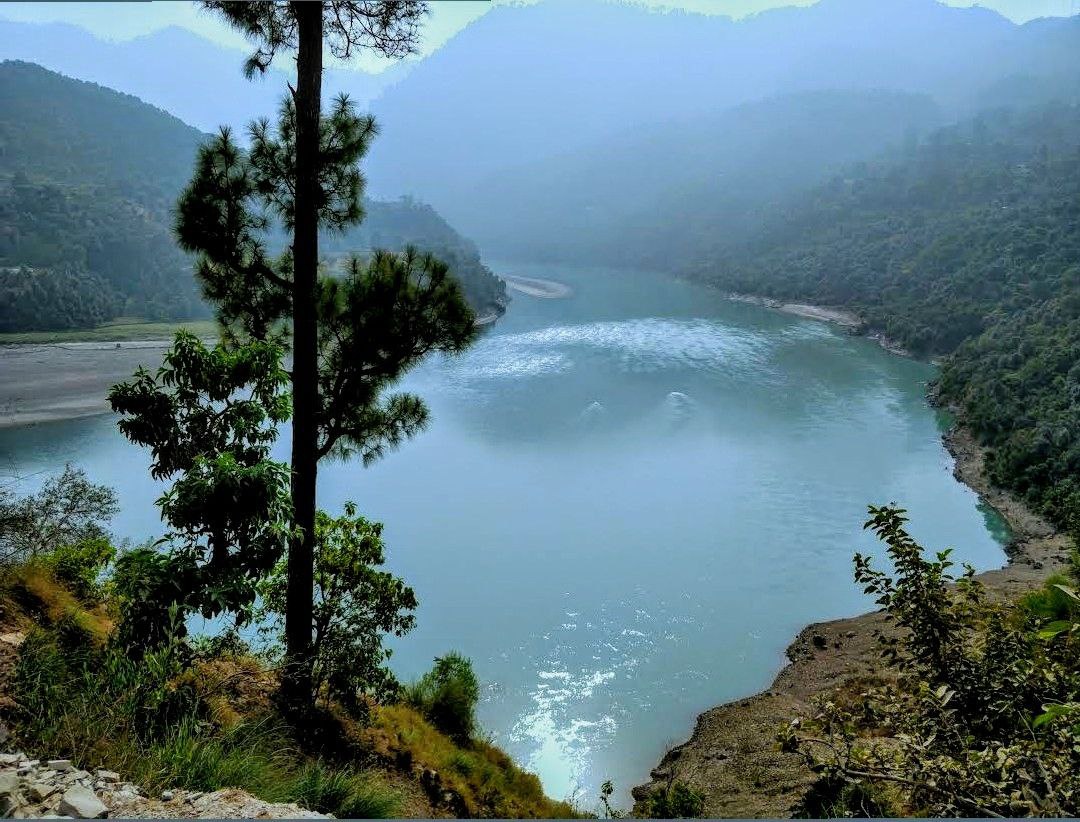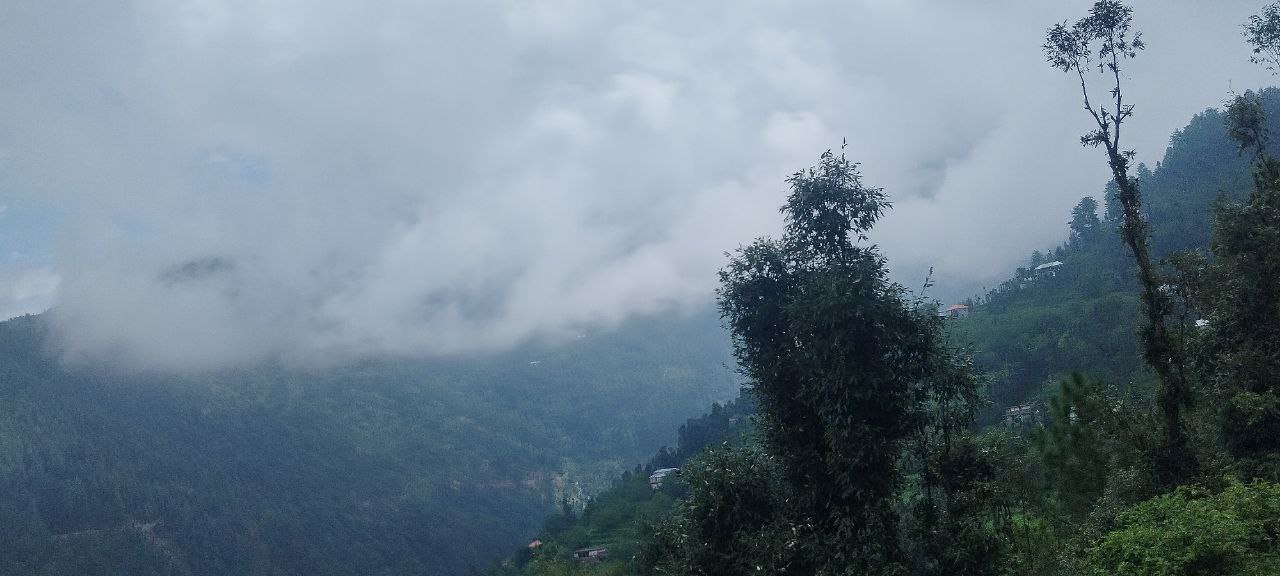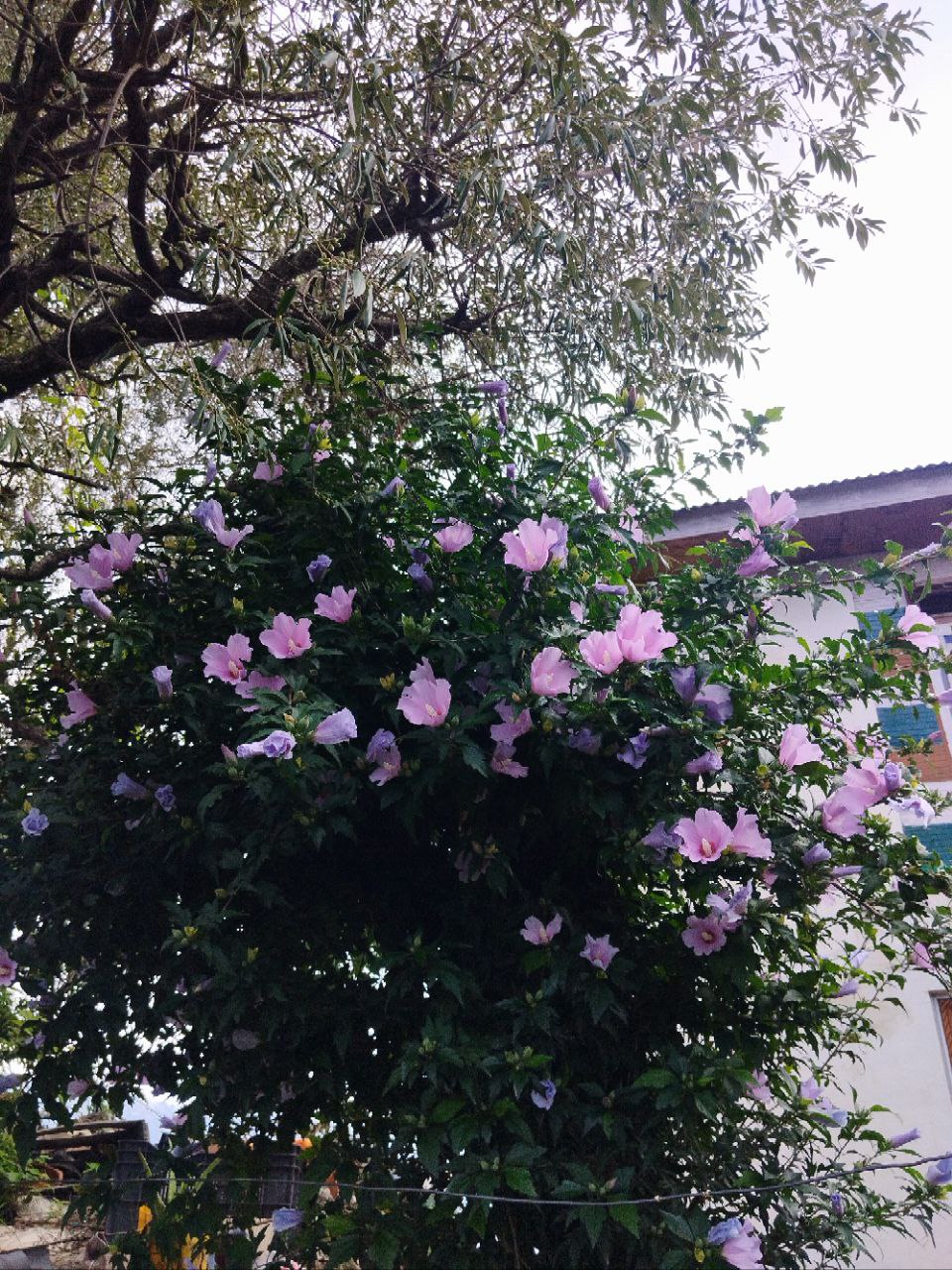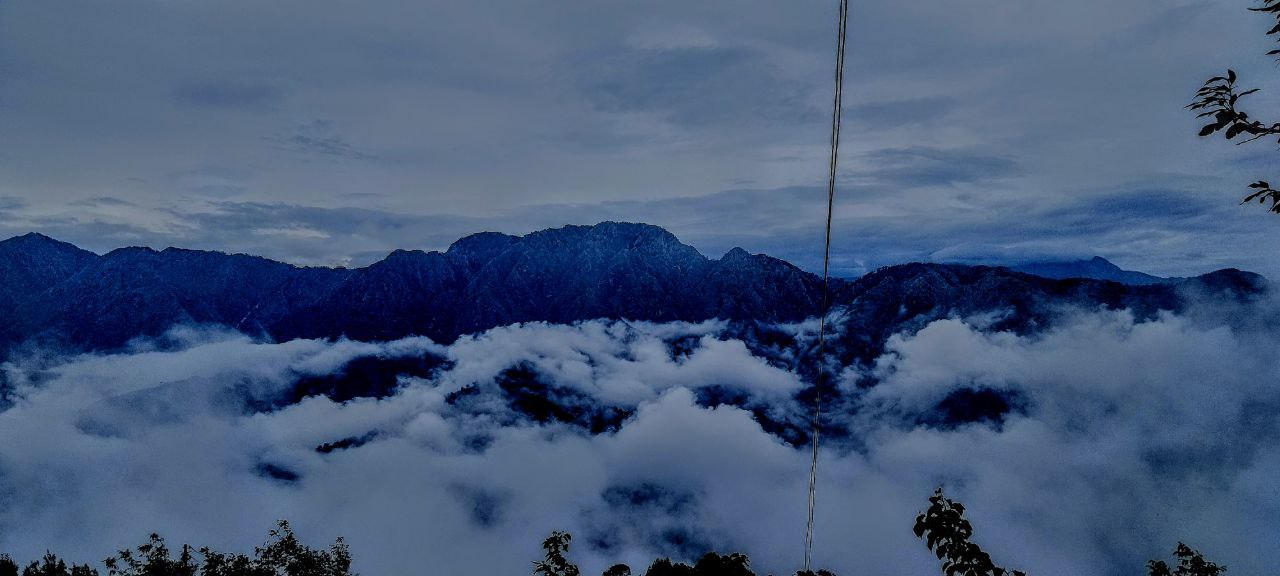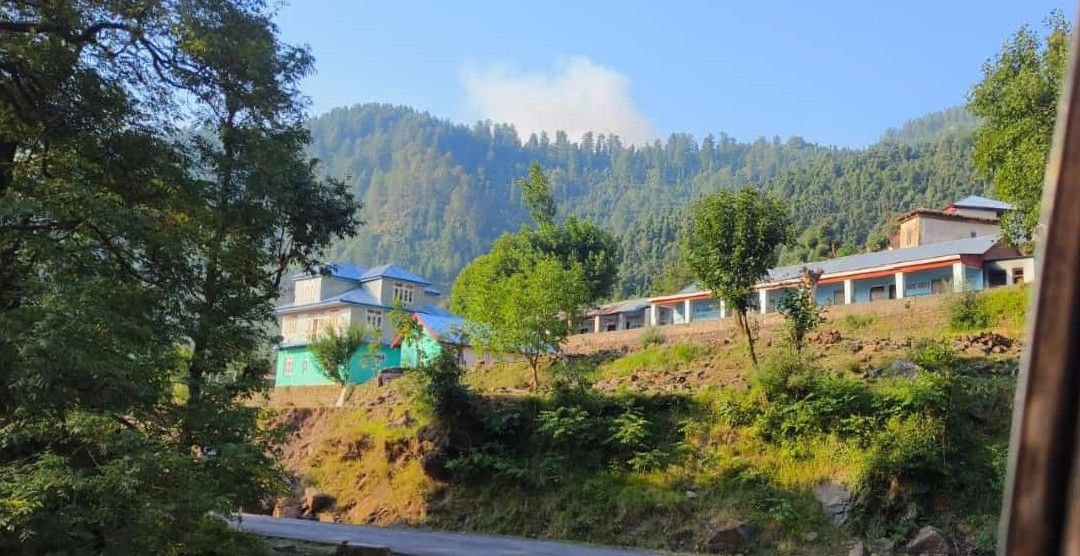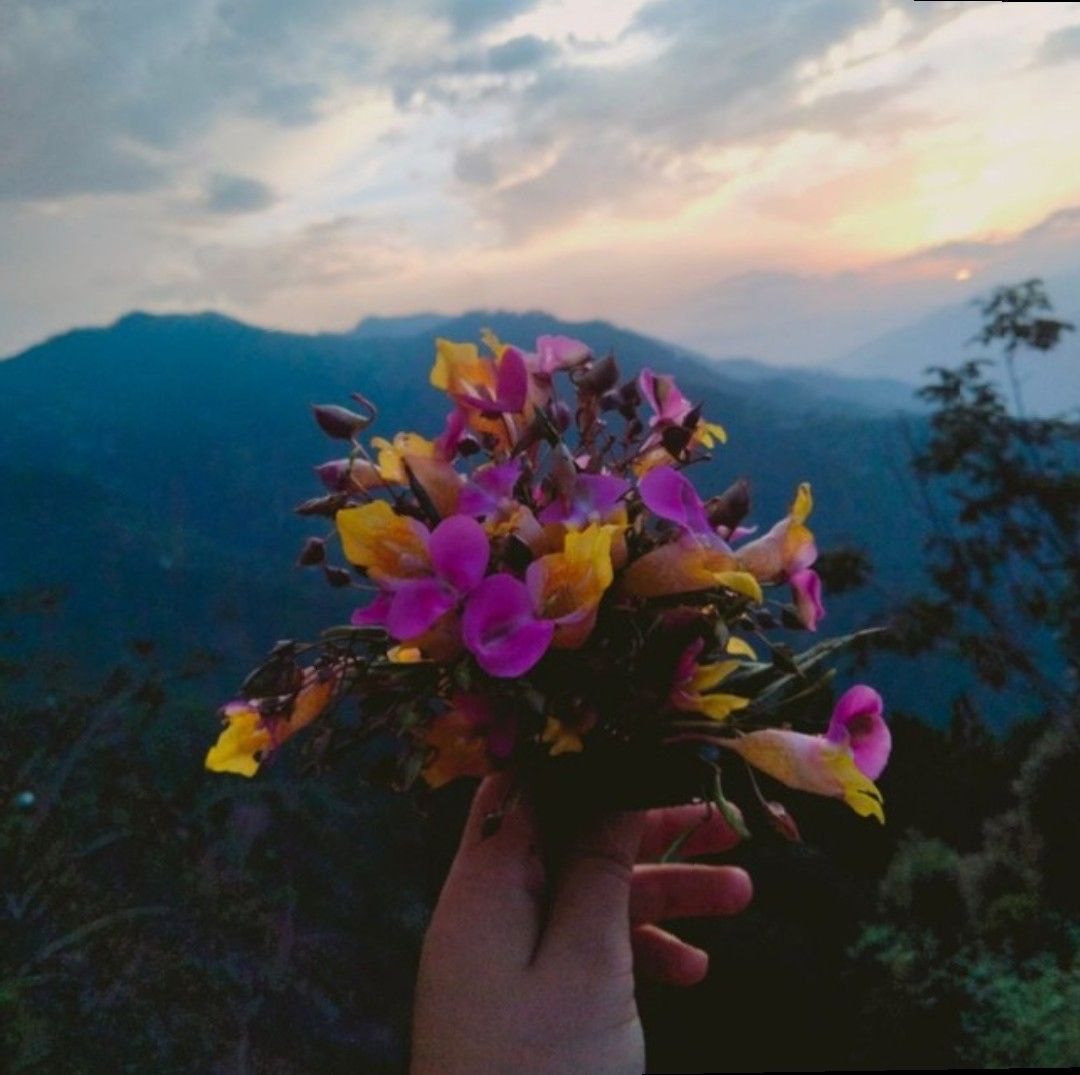Description
INTRODUCTON TO VILLAGE DAMNOTE
Village Damnote is a remote and picturesque village located approximately 140 kilometers from Jammu city. It is one of the most beautiful yet lesser-known villages in Jammu and Kashmir, featuring dense forests, natural springs, the Chenab River, waterfalls, as well as cultural and ancient religious sites.
During the winter season, the village becomes even more enchanting due to heavy snowfall. The dense forests and waterfalls offer an intense and serene experience for visitors.
The village is also known for its local cuisine, including dishes such as Baltrod Saag, which is prepared using local herbs and vegetables, accompanied by lassi.
The religious sites further enhance the village’s beauty and cultural richness. The majority of the population in Damnote consists of Hindu Rajputs, with some representation from other minority communities, including Muslims and Christians.
There are many breathtaking and undiscovered locations within Damnote, such as Diary Jungle Khorgali, Lalli Waterfall, and the Chenab River.
The residents of Damnote are known for their simplicity, generosity, and warm hospitality, making the village a welcoming destination for visitors.
HISTORY OF VILLAGE DAMNOTE :
Village Damnote has a significant history. The story begins with its formation by a man named Thakur Suraj Singh. He had two wives: Chanchala Devi, his first wife, and Frantu Devi, his second. Thakur Suraj Singh favored Frantu Devi over Chanchala Devi.
Chanchala Devi had four children, while Frantu Devi had only one. The father showed clear favoritism towards Frantu Devi's only child, often neglecting Chanchala Devi's four sons. This disparity was so severe that while the single child enjoyed lavish meals, the four sons were given only simple bread.
As the children grew older, they began participating in wrestling competitions, where Chanchala Devi’s four sons consistently outperformed Frantu Devi’s son, winning most of the matches. This bred resentment in Frantu Devi, who eventually plotted to poison the four boys. Fortunately, they were unharmed and survived the attempt.
Realizing the growing hostility in her household, Frantu Devi decided to leave Thakur Suraj Singh’s home to protect her child and herself. She moved to a remote, unknown village that had only a few inhabitants. This village was frequently targeted by robbers, but due to the strength and skills of the four brothers, they were able to defend the village and protect its people.
Under their guardianship, the village flourished. Frantu Devi's leadership and her children’s bravery earned them widespread respect. After some years, Frantu Devi passed away, and the eldest of the four brothers assumed leadership of the village.
Decades later, the villagers gathered to decide on an official name for their home. They chose to name it Damnote, in honor of the eldest son. The people of the village began to identify themselves as Damans, signifying their connection to the lineage and the legacy of its founding family.
Places to Visit:
1) Dairy Jungle Khorgali:
This dense forest is located adjacent to the Damnote bus stand. It offers an intense and beautiful experience with its cool and refreshing air. The best time to visit is during winter when the area is covered in heavy snowfall, providing an unparalleled experience.
2) Lali Waterfall:
Lali Waterfall is a stunning natural attraction located 10 kilometers from the Damnote bus stand. The sound of the cascading water creates a soothing atmosphere. Visitors can also trek to the top of the mountain to witness breathtaking views of the sunrise and sunset.
3) Chenab River:
The Chenab River is situated approximately 13 kilometers from the Damnote bus stand and 1 kilometer from the Parand bus stand. The flowing river, surrounded by banana groves, sugarcane fields, and rice crops, provides an extraordinary experience. Swimming in the shallow waters can add an exciting element to your visit. The best time to visit the river is during the summer months.
Traditional Crafts and Arts:
Damnote is known for its traditional crafts, particularly pottery, which holds significant importance in the village’s daily life. Skilled villagers create a range of earthenware items, including water pots, piggy banks, kulhads (traditional cups), and cooking vessels. These handcrafted items are not only practical but also represent cultural heritage, often displayed and sold at local fairs.
These fairs, especially during festival seasons, are more than just markets; they are vibrant cultural events. They provide villagers with opportunities to showcase their skills, pass down traditional techniques to younger generations, and support local artisans. The craftsmanship in Aghore embodies the village’s artistic spirit, blending utility with cultural expression and strengthening the bond between artisans and the community.
Community and Livelihoods:
Agriculture is the primary economic activity in Damnote, with most residents engaged in farming and animal husbandry. The main crops cultivated include wheat, maize, and rice, while many families also keep livestock, contributing milk, eggs, and meat to meet local needs. Farming in Aghore goes beyond mere sustenance; it is a communal practice where neighbors often collaborate, sharing tools, labor, and expertise, particularly during harvest seasons.
Community life in Damnote is vibrant, with frequent social gatherings such as weddings, festivals, and market days providing opportunities for connection and celebration. The village Panchayat holds significant importance, addressing local issues and coordinating community events that foster unity and cooperation.
Conservation and Sustainability Efforts:
In Damnote, sustainability is woven into daily life, showcasing the villagers' strong connection to their environment. The community collaborates to safeguard nearby forests and grazing areas, carefully managing resources to prevent deforestation and overgrazing. These conservation practices help maintain the village's long-term reliance on natural resources.
Agricultural activities in Damnote are also centered around sustainable techniques. Traditional practices such as crop rotation, organic farming, and soil preservation are employed to keep the land fertile and productive. These methods have been handed down through generations, embodying a commitment to responsible land management. Community initiatives, such as tree-planting drives organized by local schools and groups, further promote environmental stewardship.
Water resources are diligently protected, particularly during the monsoon season. The villagers implement proper drainage systems to avoid contamination and maintain clean, reliable water supplies for the entire community.
Healthcare in Damnote:
The primary source of medical care in Damnote is a local dispensary that provides essential health services to the community. For specialized medical needs, residents typically visit a hospital located about ten kilometers away. While this hospital offers more comprehensive healthcare services, reaching it can sometimes be difficult due to transportation challenges.
In addition to human healthcare, the village has facilities dedicated to the care of livestock, which are vital for many families involved in agriculture and animal husbandry. These services help maintain the health of animals, which are integral to the community's livelihood.
The local dispensary also conducts community health initiatives, organizing free health campaigns that emphasize preventive care, health education, and vaccination drives. Programs such as polio vaccination and sanitation awareness are prioritized to improve public health and target the needs of underserved groups.
Sports & Other Activities:
Sports and recreational activities play a crucial role in enhancing community involvement and promoting the development of youth in Damnote. Cricket, in particular, is immensely popular among the younger population, with informal matches often taking place in open fields. These games not only offer entertainment but also act as a medium for socializing and fostering stronger bonds within the community.
In addition to cricket, traditional sports such as Pahelwani (wrestling) hold significant cultural importance, especially during festivals like Baisakhi. These events bring villagers together to both watch and participate in the competitions, strengthening communal ties and instilling a sense of pride. The enthusiasm surrounding these events adds to the village's lively cultural atmosphere.
Education and Skill Development:
Education in Damnote places a strong emphasis on providing learning opportunities for individuals of all ages. Local schools offer foundational education to children, who are also encouraged to participate in sports and cultural activities. These extracurricular engagements not only foster skill development but also help build social bonds within the community.
For adults, government initiatives such as the Apprenticeship Training Scheme (ATS) offer young individuals the opportunity to acquire hands-on experience in various trades, equipping them with valuable vocational skills. Additionally, community-led workshops focusing on areas such as agriculture, craftsmanship, and entrepreneurship further expand educational opportunities. These initiatives aim to improve the livelihoods of residents and support the long-term sustainability of the village's way of life.
Photos
Videos
Location Map
Contact Information
| Address |
Damnot |
| Phone Number |
7006296029 |
| Email Address | |
| Website | https://localbodydata.com/gram-panchayat-damnote-240369 |


